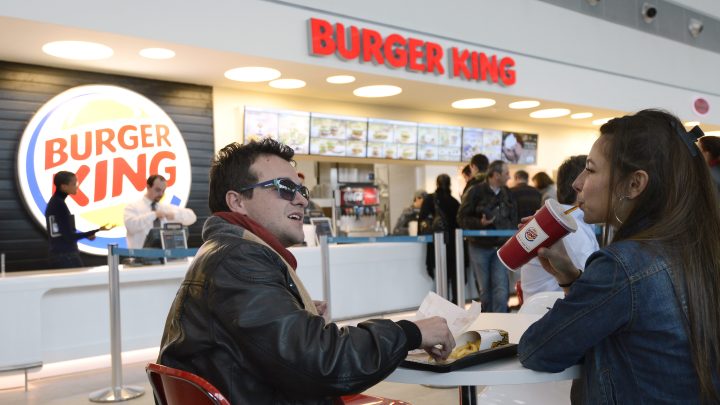
Did Burger King tell a whopper? Why false advertising suits are on the rise
Did Burger King tell a whopper? Why false advertising suits are on the rise

Burger King is facing a class-action lawsuit that alleges the fast-food chain falsely advertised the size of its Whopper burger. Taco Bell, McDonald’s and Wendy’s are facing similar suits. They are part of a growing number of false advertising suits filed in the food and beverage industry, according to QSR magazine.
“Marketplace” host Kai Ryssdal spoke with Harvard Law School professor Rebecca Tushnet to discuss the harms of false advertising and solutions. Below is an edited transcript of their conversation.
Kai Ryssdal: Can we get a little ground truth here? First, in the eyes of the law, what is false advertising?
Rebecca Tushnet: False advertising is essentially a broken promise. You promise something that you didn’t deliver that matters to the consumer that is a reason that they might want to buy something.
Ryssdal: It has to be a reasonable consumer, right?
Tushnet: Right. There’s always somebody unreasonable who expects the refrigerator never to break down. But there’s also lots of reasonable expectations, even if they might be wrong. It might be reasonable to think a medicine can last 24 hours, even if it’s physically impossible for that particular medicine. But you’re not supposed to know that as an average person on the street.
Ryssdal: It’s an increasing issue, right? There are more complaints being made, more lawsuits being filed. What is going on?
Tushnet: There’s always a dynamic in the market where sellers are trying to get away with whatever they can get away with. And some of them are not overly concerned with the truth. One of the things I think we’re seeing with the lawsuits actually is the collapse of other ways to regulate companies, and also the inability to sue for a lot of the things that go on in our lives. So most of your life, you have signed contracts with people saying, “I promise not to sue you, and instead, I will arbitrate if there’s a problem.” What’s left is the stuff that you don’t sign a contract for, the stuff that you buy in the store. So the $5 purchases or the fast-food lunch, there you can still sue. And that’s where the lawsuits are concentrating.
Ryssdal: Yeah, and it’s a lot of fast food, right? Why is that the case?
Tushnet: It’s because there’s a lot of incentive to make promises or make suggestions to consumers. And then when the consumer says, “Hey, this isn’t true,” the company says, “Well, it was vague anyway.” Like, what is “natural” really? What is “clean” really? And it’s difficult because they want you to rely on it [the product]. And then they want to say, “But it was too vague for any reasonable person to rely on it.” So the dynamic here is somewhat unfortunate for the consumer.
Ryssdal: So what is the remedy for a wronged consumer? There’s this Burger King Whopper case where Whoppers are actually not as big as they are advertised. So do we all get free Whoppers? What’s the solution?
Tushnet: So usually, the consumer asks for a refund to reflect the difference between what they paid for and what they thought they were getting. In this case, there’d probably be a settlement. And anybody who had bought a burger within the relevant time period, could get 10 cents per burger or whatever it may be. Most of the deterrent effect is that they’d probably change some of their advertising and not do it again,
Ryssdal: This thing you mentioned about signing contracts and signing away your rights to sue. What’s the net effect of that?
Tushnet: The problem with arbitration is it gives big companies the ability to basically nickel and dime you. A nickel wrongfully taken from me is no big deal. But a nickel wrongfully taken from 100 million people is a lot of money. And so I think we do need to think about responding to these sorts of large-scale things, even when they’re small individually. They just contribute to chipping away at us economically, which is not great.
Ryssdal: It’s an erosion of consumer rights, right, in a consumer-driven economy.
Tushnet: Yes.
There’s a lot happening in the world. Through it all, Marketplace is here for you.
You rely on Marketplace to break down the world’s events and tell you how it affects you in a fact-based, approachable way. We rely on your financial support to keep making that possible.
Your donation today powers the independent journalism that you rely on. For just $5/month, you can help sustain Marketplace so we can keep reporting on the things that matter to you.











